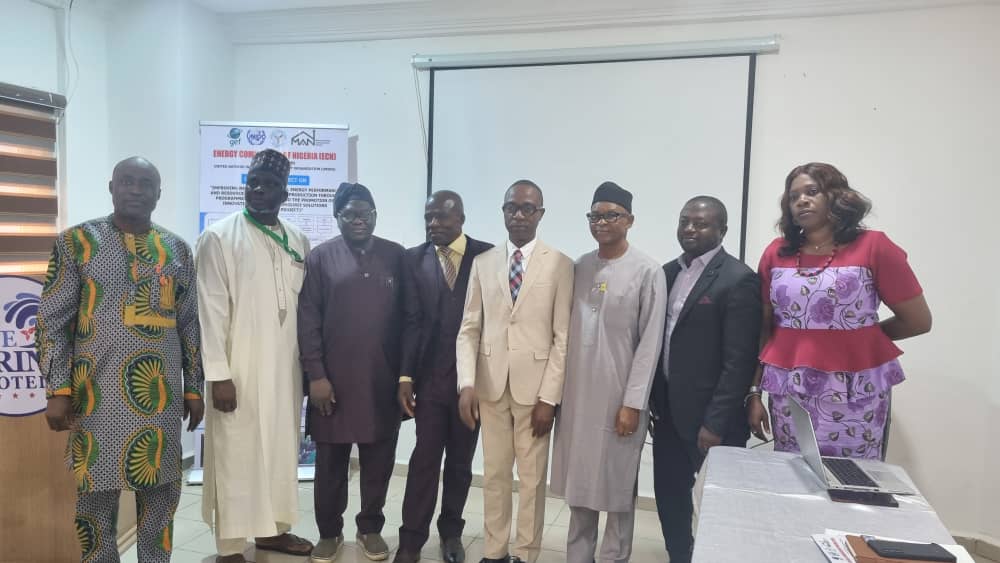Many manufacturing industries in Nigeria are currently experiencing hard times due to epileptic power supply, Dr Mustapha Abdullahi,Director-General/Chief Executive Officer of Energy Commission of Nigeria(ECN), has said.
He said this on Wednesday in Abuja at the Public Presentation Workshop organised by the Energy Commission of Nigeria (ECN) to disseminate and popularise the Industrial Energy Efficiency (IEE) Database developed under the United Nations Industrial Development Organization (UNIDO) / Global Environment Facility (GEF)’s project entitled “Improving Nigeria’s Industrial Energy Performance and Resource Efficient Cleaner Production through Programmatic Approaches and the Promotion of Innovation in Clean Technology Solutions (NIG IEE/RECP Project).”
Abdullahi,who was represented by Engr. Steve Adedayo, Director, ICT in ECN, said epileptic power supply has occasioned the closure of many industries while others have relocated outside the country.
According to him, the ECN had conducted spot surveys of selected small, medium and large-scale industries in some States such as Kaduna, Kano, Ogun, Lagos, Onitsha, Delta,Rivers, and the Federal Capital Territory, Abuja, to gather industrial energy usage data, which revealed these findings.
He tasked policy-makers to be concerned with the effects of poor energy access in the country, adding that “we are expected to develop appropriate policy and legislative framework based on actual data to reduce these negative impacts.”
He added:”The most obvious area for action is to improve the reliability of the energy supply through minimising energy wastages through the adoption of energy efficiency and conservation best practices.”
Explaining the importance of database in the efficient energy management, Abdullahi said:”Data collection, storage, retrieval and analysis is the bedrock for an effective energy management.
“It is often said that you cannot manage or monitor what you don’t measure.
“This popularisation and dissemination of the IEE Database is organised to enhance stakeholders’ understanding of the need for data keeping as a prerequisite for mainstreaming energy and energy-efficiency best practices into the nation’s development goals and actions.”
Speaking, Segun Ajayi-Kadir, Director General of Manufacturers Association of Nigeria(MAN), said the Nigerian manufacturing sector is under immense pressure to optimise production processes, reduce energy costs and improve environmental compliance.
Represented by Adeyemi Folorunsho, Director, Abuja Liaison Secretariat,Kadiri pointed out that energy is a critical driver of industrial performance.
He added that the MAN has remained steadfast in supporting the adoption of IEE and RECP methodologies as part of its long-term vision for industrial sustainability.
Dr. Reuben Bamidele, National Programme Officer, United Nations Industrial Development Organisation(UNIDO), commended Energy Commission of Nigeria for the implementation of the Project.
While underscoring the importance of data, Bamidele argued that without data, planning will be meaningless and baseless.
He expressed optimism that the database being developed by ECN would go a long way in managing industrial processes better, with greater impact on the energy sector.
Engr.Okon Ekpenyong, Industrial Energy Efficiency Consultant to the ECN, harped on the need for the project in Nigeria.
As part of the measures to ensure Industrial Energy Efficiency in Nigeria, Ekpenyong explained that the ECN conducted Surveys in some industries in some selected States across the country.
On the essence of the data, he said: “You cannot manage what you don’t measure. Our measurement has to do with information and data.
“As part of this project, we had visited some industries to have a baseline survey about the amount of energy they consume, how much they consume, where and when they consume the energy.”
He said that some of their findings revealed that many industries have shut down due to high electricity tariffs.
Apart from high electricity tariffs, he disclosed that power supply in these industries has not been stable, which has negative impact on their production.

















